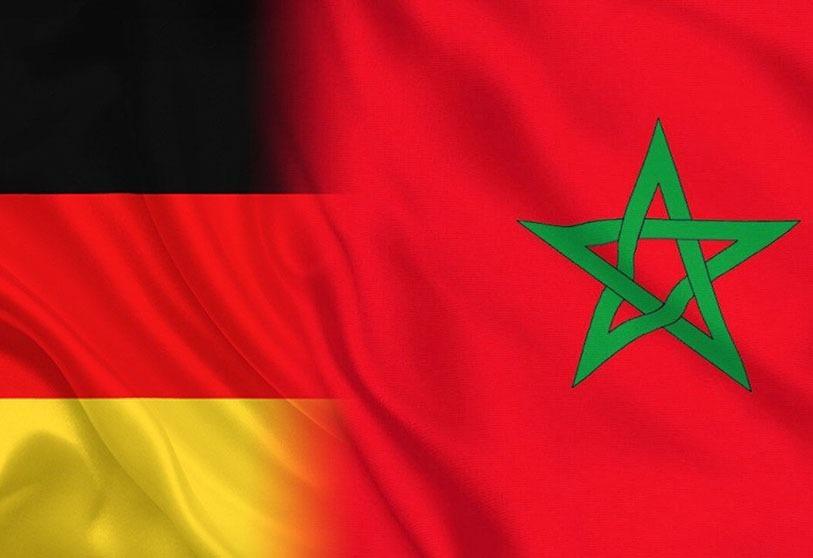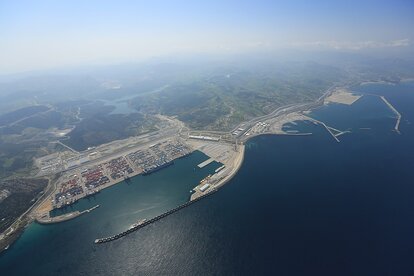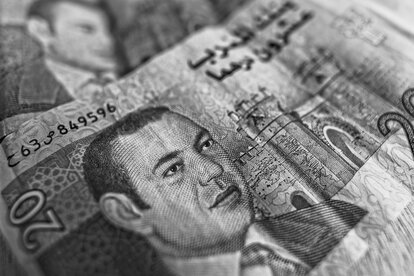Economy
Morocco: the new investment land for Germany

Morocco & German flags.
© PHOTO/ARCHIVOMorocco's privileged geographical location in the north of the African continent, facing the Mediterranean and the Atlantic Ocean, as well as its massive investment policy in the transport and logistics sectors for more than a decade, are undeniable assets that put Morocco in strategic focus. This is reported by the Moroccan Chamber of Commerce and Industry, which defines Morocco as a strategic center for the development of Euro-African business.
Although the coronavirus pandemic, that has been raging for more than two years, has led to a reorganization of international value chains, Morocco has emerged stronger from this situation, as it now stands as a major partner for Europe, which is seeking to offset its strategic dependence on Asia. Morocco is particularly attracting the attention of German investors, who see it as a gateway to the African continent and a potential player in nearshoring, i.e., the practice of transferring a business activity to a nearby country. The latest contribution of Bilateral magazine, written by the German Chamber of Commerce and Industry in Morocco, says that from the perspective of the search for sourcing and production alternatives, Morocco could assume the role of a key player in nearshoring. The advantage of this technique lies in proximity, as Morocco is less than a 3-hour-flight from Berlin, but also in production savings thanks to a cost reduction of up to 50%. Finally, this offers companies the possibility of controlling their fixed costs in the event of low activity.

Tanger
© PHOTO/TANGER MEDMoreover, Germany is an important financial partner for the Kingdom, as it has registered an increase in German direct investments since 2015. In fact, according to data from the Deutsche Bundesbank, the stock of German direct investments has increased from 213 million euros (2015) to 1.3 billion euros in 2020. Similarly, the number of German companies established on Moroccan soil would have almost doubled to 93 today. In fact, the increase in German investment has been made possible mainly thanks to investments by both sides in the automotive construction, electronics and logistics sectors, sectors that will remain essential in the future, according to the same source. The continuation of cooperation efforts between the two countries could also allow Morocco to benefit from German know-how in the sectors of digitalization or ecological transition, a real added value for the Kingdom. The favorable diplomatic context between the two countries, as demonstrated by the German support for Morocco's proposal for a large autonomous Western Sahara under Moroccan sovereignty to resolve the Saharawi conflict, is a further plus for deepening relations between the two countries.
Representing 10% of Morocco's earnings, the State is trying to increase the attractiveness of the transport and energy sectors by developing numerous infrastructures, such as the port and industrial complex of Tangier Med, located 15 km south of Spain. With the development of its transport and logistics infrastructures, Morocco drains economic activity by employing nearly 182,000 people, according to 2019 figures. These Moroccan assets constitute a real reservoir of investment opportunities for German companies that perceive Morocco as a real long-term investment niche. The privileged relations between the European Union and Morocco make the latter a growing player in economic exchanges, which predestines it to become, in the long term, an international trade hub, in the words of Mohamed Yousfi, Director of the Moroccan Agency for the Development of Logistics (AMDL).

Morocco bill
© PHOTO/PIXABAYHowever, if the AMDL director considers that Morocco has the foundations to develop an intercontinental logistics vocation, he warns Morocco on the need to pursue its efforts to become even more competitive if it wants to continue to attract new international flows, at a time of recovery of the world economy. The Kingdom's global positioning in the upper average in terms of the performance of its logistics sector should invite it to pursue this ambition in order to maintain its leading position, on an African scale. A better structuring of the transport and logistics sector should also be a solution to enable Morocco to become a real lever of the various sectoral strategies, according to Jean-Pascal Darriet, president of the monthly magazine Conjonctures.
Indeed, Morocco would have much to gain from German investors directly involved in the socio-economic development of the country and the drain on its economy, as attested to by Andreas Wenzel, Director of the German Chamber of Commerce and Industry in Morocco: "German companies create more than 35,000 direct jobs in the Kingdom and countless other indirect jobs with local partners." As the second most important investment location of the German economy on the African continent, the investment stock between Rabat and Berlin has increased significantly since the 2010s. To this end, the German investment stock has increased by 643% since 2010 and Moroccan exports have increased by 122% since 2010, according to Andreas Wenzel.
Despite the coronavirus crisis, Morocco constitutes a real growth relay for international and German companies in this particular context, according to Hicham Boudraa, acting director of the Moroccan Agency for the Development of Investments and Exports (AMDIE). The conclusions of the latest report published by the German Chamber of Commerce and Industry in Morocco reinforce this position, underlining that the two countries still have a lot to offer each other, particularly in the fields of sustainable food production or Industry 4.0, which will involve the new challenges of digital technology.
